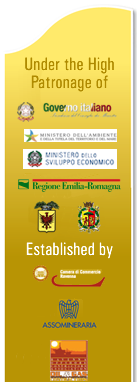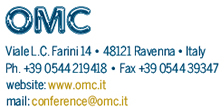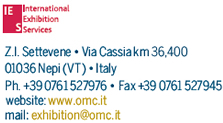Edison, Saglia: no diplomatic war
The Italian government is interested in understanding what is going on with Edison, “but there is no diplomatic war”. Economic development undersecretary for energy, Stefano Saglia, made this point after Edf's decision to devalue its Italian activities, Edison included. The devaluation of assets in Edison's balance sheet is one of the points of divergence between Edf and the Italian partners led by A2a in the context of renewal of pacts, and Saglia had warned that the Italian government “would not be pleased” with any distortions. Recently, economic development minister Paolo Romani had said openly that the Italian government would oppose any Edf takeover of Edison.
Eni, adjusted net income in 2010 +31.9%,
record production in 4th quarter
The high price of oil and a record production of 1.954bn b/d (+2% over the same period in 2009 and +1.1% on an annual basis at 1.815mn b/d) have enabled Eni to close the last quarter of 2010 with adjusted net profit of €1.72bn (up 23.6%), while for the whole year the net profit was €6.87bn (up 31.9%). Net profit was €0.55bn in the quarter (up 40.2%) and €6.32bn for the full year (up 44.7%). The preliminary figures for 2010 examined by the board last week encouraged the comment published soon afterwards, affirming that “the excellent result of the E&P sector benefited from the increased price of oil and the appreciation of the dollar”. Drivers of the increase were new field start-ups, particularly the Zubair field in Iraq, started up in the fourth quarter, amounting to 90 and 40 kboe/d in the quarter and full year, respectively. Those trends were partly offset by mature field declines. Lower entitlements in Production Sharing Agreements due to higher oil prices, as well as lower gas uplifts in Libya as a result of oversupply conditions in the European market were partly offset by lower Opec restrictions resulting in a net negative impact of approximately 7 kboe/d on an annual basis and in a net positive impact of approximately 10 kboe/d in the quarter. The difficulties of the Gas & Power division continue, with its quarterly sales at 28.76bn m3, +1.3% compared with the fourth quarter of 2009, but down 6.4% on an annual basis at 97.06bn m3 because of lower sales volumes in Italy. The company explains that “the Gas & Power division reported sharply lower results as unit margins and gas volumes sold in the first three quarters were hit by strong competitive pressures”. Refining & Marketing remained weak (-39mn) as did the petrochemical business (-74mn), but both recovered somewhat over the same period in 2009. In particular, quarterly oil product sales in were down 4% (-4.4% on an annual basis) because of lower consumption and increased competitive pressure which provoked a drop of 0.8% in market share (30.4% in the fourth quarter of 2010). Sales in Europe were positive (+1.4% and +3.7% in the quarter and on an annual basis) benefiting from the acquisition of a group of service stations in Austria in the second half of the year, and of increases in throughput in some eastern European countries, in Germany and France. As for refining margins, the marker Brent margin was $2.74 per barrel ($2.66 on an annual basis) higher than the extremely low levels touched in the fourth quarter 2009 (up $1.5 per barrel in the quarter, or 121%, and down by $0.5 per barrel, or 15%, for the full year). Eni's margins in the same period slightly profited from a re-opening of light-heavy crude differentials in the Mediterranean area (the Brent vs Ural spread was up $0.9 a barrel) and from higher premiums on feedstock for gasoline compared to fuel oil. Proved reserves at the end of the year amounted to 6.84bn barrels, with the Brent reference price at $79 a barrel. Net financial debt at the end of 2010 was up to 26.119bn euros from the 23.055bn at the end of 2009, with a debt/net asset leverage of 0.47 at the end of 2010, compared to the 0.46 at the end of 2009. The dividend the board will propose to the shareholders is €1.00 per share (including the interim dividend of €0.50 per share paid in September 2010).
Libya's Mediterranean oil terminals shut down
Libyan oil terminals on the Mediterranean have been shut down by the protest movement, according to Al Arabiya television. Meanwhile Saras has told Staffetta that at least for now there has been no problem in supplying the Saras refinery of Sarroch (Cagliari). “We are confident that the situation can soon be resolved”, the company said. Its tranquility comes also from the fact that unlike Eni and Impregilo, it has no infrastructures in Libya and therefore it can get supplies from other countries as well: “We have the flexibility typical of a coastal refinery, and we can buy oil anywhere”. Moreover, even if the terminals should remain closed for a whole week, Saras has crude stored. The percentage of crude oil Saras acquired from Libya in the past has gone down from 60% to 40%. Of the rest, 30% comes from the countries of the Caucasus, 20% from the North Sea and 10% from the Middle East.
In general, the other companies contacted by Staffetta which have refineries in Italy likewise show little preoccupation, both because they think the situation will calm down and because they have enough flexibility, like Saras (the Unione Petrolifera has expressed the same notion in these days). They are in any case studying strategic plans in case the situation gets more complicated. And the Economic Development Ministry is monitoring the situation, refinery by refinery: as with natural gas “there is a situation of alert but not of emergency”, ministry sources say.
According to Unione Petrolifera chairman Pasquale De Vita, there is no risk for supplies. “We are in an acute phase but the situation will return to normal also because the interest of producers in exporting to us is equal to our interest in importing from them. It is the meeting of two interests, there is a reciprocal bond”, he said, concerning the supply risk feared as a result of the Libyan crisis. As for possible repercussions on Italian contracts in Libya, De Vita responded that he was not worried because “normally everyone is concerned to confirm existing contracts”.
Transitgas, temporary operation extended through May
The Swiss pipeline Transitgas has announced that temporary operation through the present route, opened temporarily after a mudslide damaged the pipeline in July, may continue beyond the planned deadline at the end of February, “at least until the end of May”. The company's note explained that a definitive announcement will be made once the authorities have approved the plan.
As for a more permanent solution of the problem through construction of an alternate pipeline routed around the area of the mudslide, Transitgas reports that the work begun on Jan. 10 should be completed as planned within “about five months”. At the end of construction, it will be necessary to interrupt the transport flow to redirect the gas to the new route. Transitgas concludes that barring weather or other possible problems “gas transport could begin along the new route at the end of May 2011”.
Galsi, region of Tuscany says yes
The governing board of Tuscany has given its favorable judgment of the ministerial environmental impact evaluation for construction of the Galsi gas pipeline linking Algeria to continental Italy by way of Sardinia. Now it is the turn of the services conference for granting of the single authorization by the Economic Development Ministry, after Sardinia and Tuscany agree. Tuscany is working on stipulating an agreement with Galsi concerning compensations.
Libya, natural gas flow interrupted
The flow of natural gas from Libya to Italy through the Greenstream pipeline have been interrupted by the unrest in that country. The report was confirmed by Eni in a Feb. 22 statement. "Following the temporary suspension of some gas activities in Libya, supplies of natural gas from Libya through the Greenstream pipeline have been suspended”. The note adds that nonetheless “Eni is still able to meet its customers' demand for gas. Currently Libya supplies around 10% of Italy's gas needs”. The Economic Development Ministry confirmed that the suspension entailed no problems "for the security of supplies and consumption of gas for our country ". The ministry's note explained that natural gas imports come from many countries and that the “storage system of gas existing in our country constitutes potentially, in case of necessity, another reserve for the security of supplies”. In the early days of the disorder in Libya, the flow through Greenstream remained regular and at high levels of around 25mn m3 a day. In 2010, Libya supplied Italy with a total of 9.4bn m3 of gas a day, about 11% of total consumption in Italy. A total stop of Greenstream would not represent a serious danger for the Italian system, at least for now. According to Snam data, in fact, there is a margin for increasing imports from Russia. Moreover the latest data from Eni's storage company, Stogit, show that Italian reserves contain over 3.8bn m3. In short, a critical situation could arise only if there was a cold wave at the end of winter accompanied by the interruption of another transport infrastructure.
Eni, Gazprom to take half Elephant stake
Gazprom Ceo Alexei Miller and his Eni analogue, Paolo Scaroni, in the presence of the president of the Russian Federation, Dimitri Medvedev, and Italy's premier, Silvio Berlusconi, have signed an agreement laying the foundations for a future granting to Gazprom of 50% of Eni's 33.3% stake in the consortium which is to develop the Libyan oil field of Elephant, about 800 km from Tripoli (see SN n. 44 2010). The interest Eni is to transfer to Gazprom has been evaluated at $170mn. Eni and Gazprom have also signed an agreement committing to finalization by Feb. 28 of the gas sales contract for natural gas from the Siberian fields of Severenergia, a company owned by Gazprom, Eni and Enel.











 Print this page
Print this page













